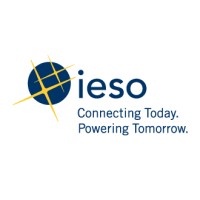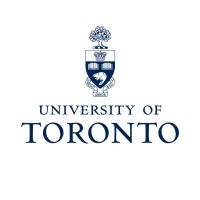
Closed
Neighbourhood Climate Action Grants
Last Update: October 28, 2025
Toronto, ON
Funding for resident-led Toronto climate action and education projects
Grant and Funding
At a glance
Funding available
Financing goals
Increasing community impact
Reduce the ecological footprint
Supporting volunteer engagement
See more
Eligible Funding
- Maximum amount : 7,500 $
Timeline
- Receipt of requests is now closed
Eligible candidates
Eligible Industries
- Educational services
- Arts, entertainment and recreation
- Other services (except public administration)
- Public administration
Location
- Toronto
Legal structures
- All legal structures
Annual revenue
- All revenue ranges
Organisation size
- All organization sizes
Audience
- Indigenous Peoples
- Newcomers to Canada
- Other Racialized Persons
- Black Canadians
- Canadians
- Youth (<40)
- Women
Overview
The Neighbourhood Climate Action Grants provide up to $7,500 in government funding to support resident-led projects in Toronto that foster climate education, community engagement, and emissions reduction. Eligible activities include emission-reducing initiatives such as repair events and renewable energy feasibility studies, as well as climate change education through workshops and interactive community programs.
Activities funded
- Community-led projects that educate and engage the public on climate change through interactive events, workshops, or campaigns.
- Initiatives aimed at reducing greenhouse gas emissions in neighbourhoods, such as organizing repair or swap events, cycling clinics, or anti-idling campaigns.
- Development and delivery of climate change educational resources, including toolkits, guides, or citizen science projects.
- Neighbourhood activities supporting waste reduction, recycling, sharing libraries, or nature-based climate solutions like local carbon sequestration efforts.
- Feasibility studies or pilot projects for sustainable energy adoption or retrofits within the community.
Eligibility
- The applicant must be a resident-led group composed of at least three members, each residing in a different household in Toronto (postal codes starting with M).
- The project must directly contribute to emission reduction and/or include a climate change education component.
- Projects must be new or enhanced activities and not ongoing operations.
- All neighbourhoods in Toronto are eligible, but projects based in Neighbourhood Improvement Areas (NIA) or Emerging Neighbourhoods (EN) will be prioritized.
Who is eligible?
- Resident-led groups consisting of at least three members residing in different households in Toronto (postal codes starting with M)
Who is not eligible
- For-profit businesses or ventures, including Business Improvement Areas.
- Non-profit organizations.
- Industry or trade associations.
- Organizations mandated by other levels of government (e.g., universities, schools, hospitals).
- Landlord/tenant and condominium corporations.
Eligible expenses
- Equipment rentals and small equipment purchases (equipment must remain in the community after the project ends)
- Honoraria, food expenses, transit costs, and personal protective gear for volunteers
- Honoraria for Elders and Knowledge Keepers
- Barrier reduction costs for project participants, such as childminding, meals, or transit
- Honoraria for group members
- Consultant and staffing fees directly related to the project
- Local travel expenses (such as public transit tickets or car-for-hire receipts)
- Interpretation and translation fees
- Training and workshop expenses, including facilitation or speaker fees
- Training expenses (for example, food handlers training)
- Communications and promotion (such as printing and digital advertising)
- Permit fees, space rental, and liability insurance for community events and activities
Eligible geographic areas
- Resident-led groups with at least three members residing in different households in Toronto (postal codes starting with M).
- Projects based in all Toronto neighbourhoods are eligible.
- Priority for projects based in Neighbourhood Improvement Areas (NIA) and Emerging Neighbourhoods (EN) within Toronto.
Selection criteria
- Ability of the group to carry out the project.
- Demonstrated understanding of climate action.
- Likelihood that the project will bring about change in awareness, skills, or behaviour.
- Clarity of the project’s goals and rationale.
- Clarity and realism of the application, including project steps and budget.
How to apply
1
Form a resident-led group
- Form a resident-led group with at least three members residing in different households in Toronto
- Ensure all members meet eligibility criteria
2
Develop your project
- Develop a new or enhanced climate action project
- Ensure the project either reduces emissions or includes a climate change education component
3
Attend information session or seek feedback
- Attend or watch the grant information session recording
- Consult City of Toronto staff for project feedback if necessary
4
Prepare your application
- Prepare the grant application by responding to all application questions
- Complete application materials according to the grant requirements
5
Collect supporting documents
- Gather all necessary supporting documents, such as letters of support, completed budget, and proof of in-kind support
6
Submit the application online
- Submit the complete application and supporting documents through the Application Portal
7
Await results
- Wait for the application review process and result notification
- Application review period: September to December 2025
- Applicants will be notified in January 2026
Additional information
- Successful applicants are matched with a community organization trustee responsible for managing funds.
- A mid-year progress report and a final project report, including financial details and supporting media, are mandatory for all recipients.
- Applicants must notify staff and their city councillor at least two weeks in advance of all public-facing events.
- Free access to community centre and library spaces is available for project activities, provided booking procedures and notice requirements are followed.
Contacts
Sharene.Shafie@toronto.ca
416-392-1848
Toronto, ON, Canada
Apply to this program
Frequently Asked Questions about the Neighbourhood Climate Action Grants Program
Here are answers to the most common questions about the Neighbourhood Climate Action Grants. This section explains what the program is, how much funding is available, eligibility requirements, application deadlines, and other important details to help you determine if this grant is right for your business.
What is the Neighbourhood Climate Action Grants?
How much funding can be received?
Who is eligible for the Neighbourhood Climate Action Grants program?
What expenses are eligible under Neighbourhood Climate Action Grants?
Who can I contact for more information about the Neighbourhood Climate Action Grants?
Where is the Neighbourhood Climate Action Grants available?
Is the Neighbourhood Climate Action Grants a grant, loan, or tax credit?
Apply to this program
More programs like this

Grant and FundingExpert AdviceOpen
Expanded Energy Management Program
Independent Electricity System Operator (IESO)Funding to strengthen facility energy management and efficiency initiatives

Grant and FundingClosed
Ontario Anti-Hate Security and Prevention Grant (2025-26)
Government of OntarioSupports Ontario organizations enhancing security against hate‑motivated incidents

Grant and FundingOpen
Retail Modernization Project Grant (RMPG)
Ontario Centre of Innovation (OCI)Supports Ontario SMEs in adopting and implementing digital technologies

Grant and FundingOpen
OTF — Organizational Mentors
Ontario Trillium Foundation (OTF)Supports organizations mentoring grassroots groups to deliver funded projects

Researchers And FacilitiesPartnering and CollaborationGrant and FundingOpen
Artiste en résidence canadien en début de carrière dans le domaine de l'urbanisme
University of Toronto (UOFT)Year-long artist residency exploring key urban issues

Grant and FundingOpen
FPACN Justice Grant Program
Black Opportunity Fund (BOF)Supports Black-led justice and equity initiatives in Canada

Grant and FundingOpen
OTF ��— Community Building Fund – Capital Stream
Ontario Trillium Foundation (OTF)Supports capital improvements through construction, fixed equipment, and development

Grant and FundingOpen
OTF — Economic Recovery and Resilience Fund
Ontario Trillium Foundation (OTF)Supports Black youth pathways to jobs and entrepreneurship

Grant and FundingClosed
Enabling Accessibility Fund — Small projects
Employment and Social Development Canada (ESDC)Funding to create more accessible, safe spaces

Grant and FundingOpen
Eco-Roof Incentive Program
City of TorontoSupports installation of green and cool roofs in Toronto
Sign up to our platform to access the Neighbourhood Climate Action Grants information sheet for free
Get access to 4,000+ programs, practical guides, personalized alerts, and an AI assistant to support your grant applications.